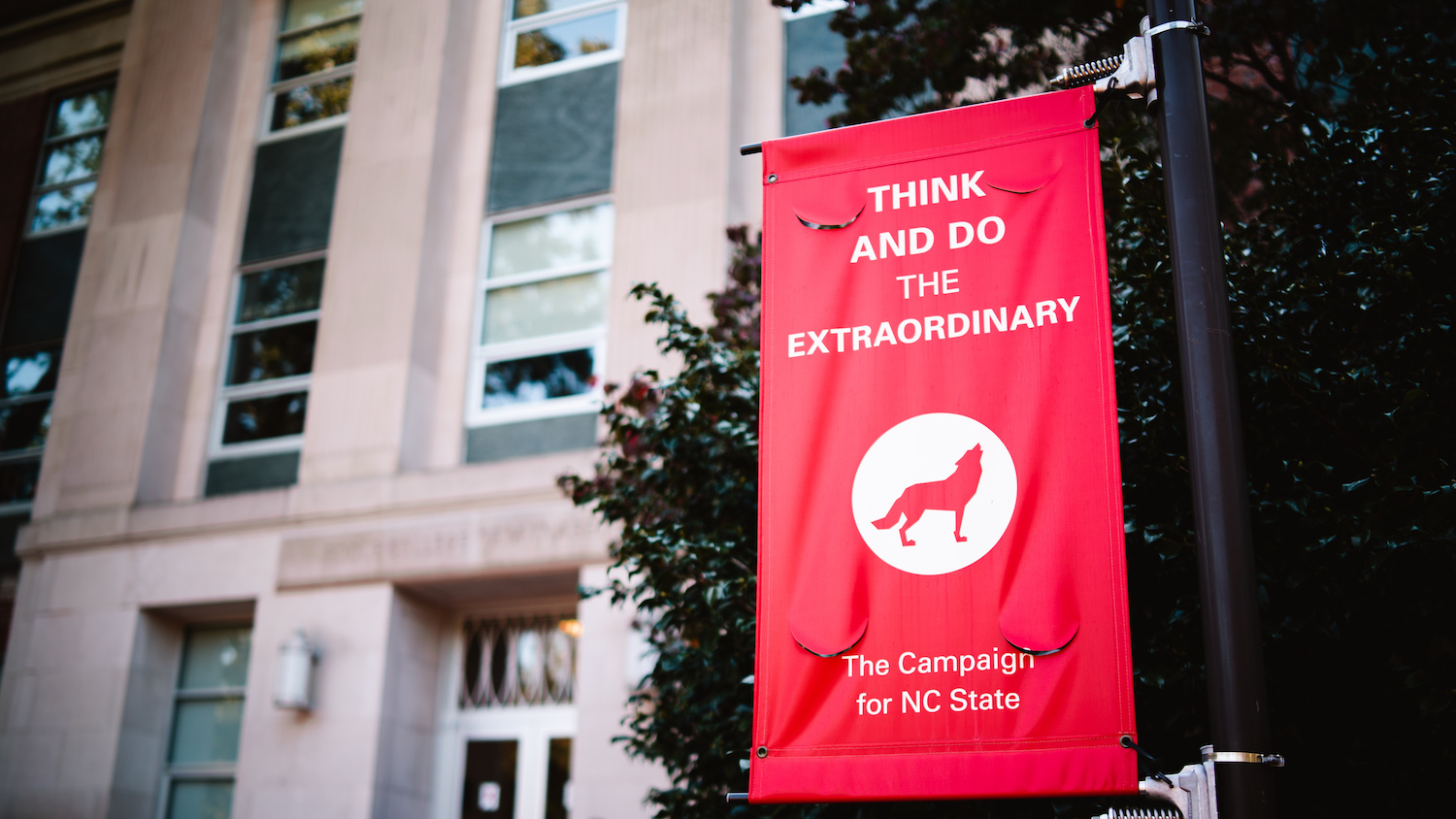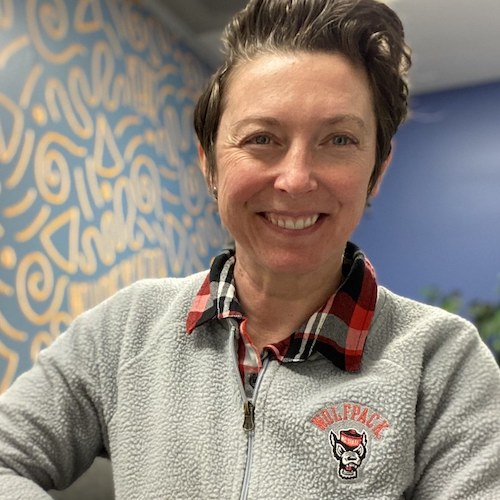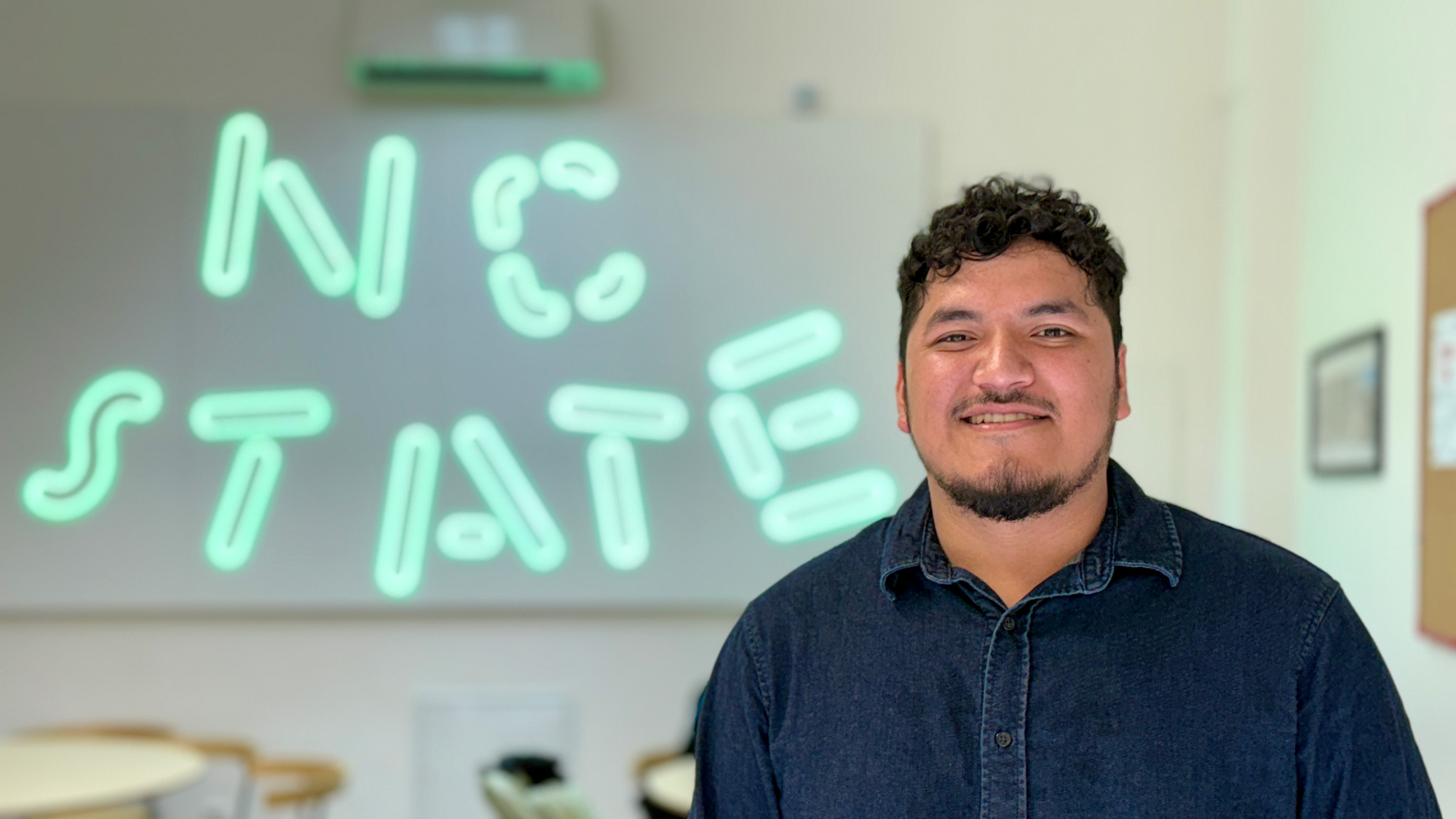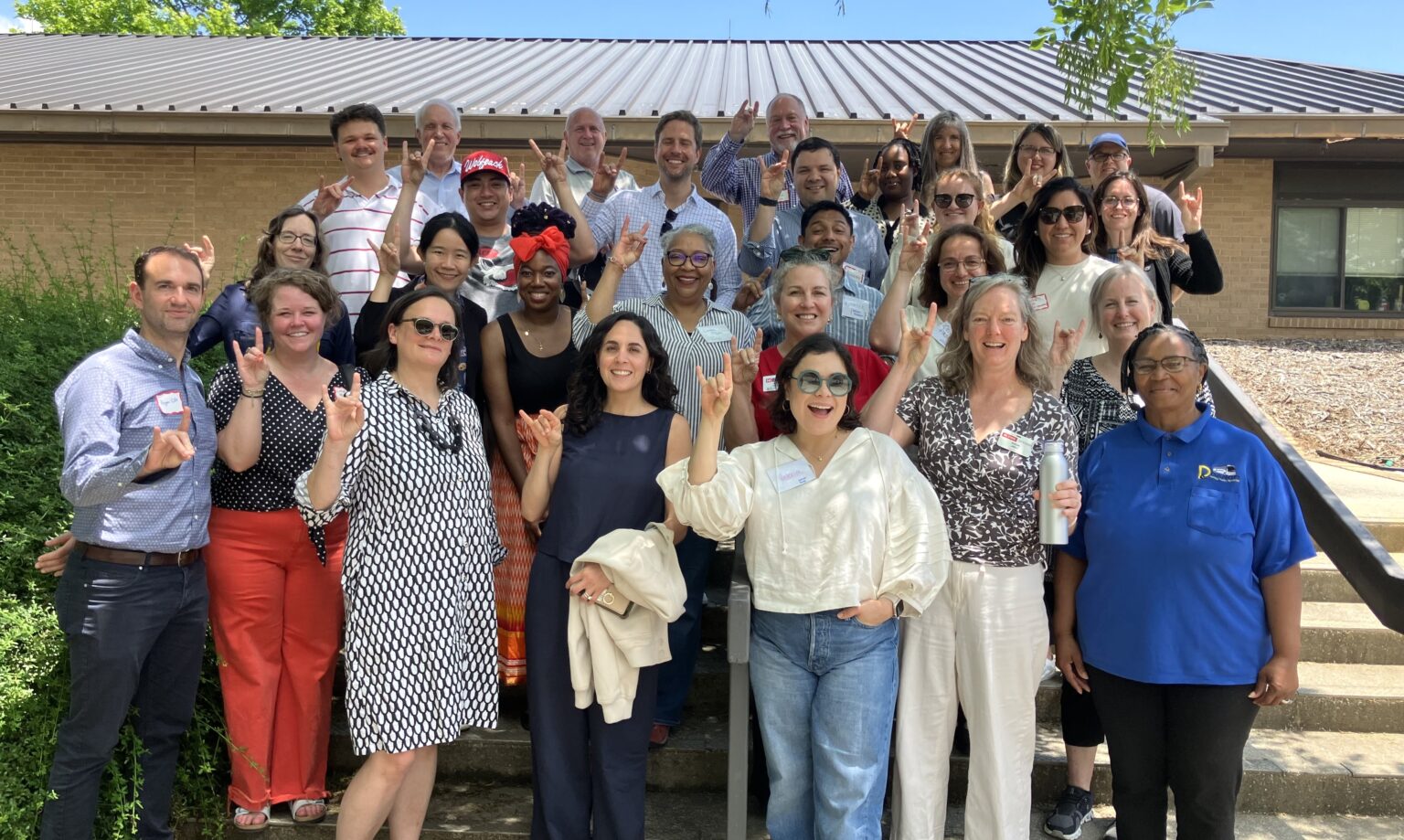Fueled by Collaboration, Poole Pack Development Series Brings Professional Development Opportunities to Staff and Faculty

By Lea Hart
When Maggie Merry took on the role of assistant dean of finance and administration in May 2019, professional development for staff and faculty was among her top priorities.
That initiative took on new significance as Poole College faced the challenges brought on by the global pandemic over the past year.
At the heart of that effort was the Poole Pack Development Series, a professional development program open to all faculty and staff. Merry began to develop the series soon after she was hired, with just a small team that included herself, a human resources staff member, and input from the executive education team, as well as enthusiastic support from Dean Frank Buckless.
Our goal with the Poole Pack Development series is to provide relevant programs that allow our faculty and staff to grow and develop to ensure they can efficiently and effectively do their jobs and to also allow them to take advantage of new opportunities as they become available.
“In the Poole College we value our faculty and staff and want them to be successful in fulfilling their responsibilities,” Buckless said. “Our goal with the Poole Pack Development series is to provide relevant programs that allow our faculty and staff to grow and develop to ensure they can efficiently and effectively do their jobs and to also allow them to take advantage of new opportunities as they become available.
“The success of our faculty and staff translates into the success of our students and other constituents.”
Collaboration on the series has grown to include faculty and staff voices from across Poole College, and topics now range from professional development to health and wellness to diversity and inclusion, among others.

“Once people saw it, they got really excited about it,” Merry said. “We’ve worked to develop all of these topics because we know people have enjoyed them, and we’ve gotten feedback from staff and faculty attendees about what they’d like to hear about next.”
Drawing from the university’s own experts
A quick look at a few past sessions shows the range of topics and interest areas. Tim Kraft, assistant professor of operations and supply chain management, presented “Living Lean: Applying Lean Manufacturing Principles in Your Every Day Life.” Stephanie Helms Pickett, associate vice provost of inclusive excellence and strategic practice presented “The Macro of Microaggressions,” while Leigh Shamblin, director of Leadership and professor of practice, explored how to use design thinking in the face of challenges.
The sessions are led by thought leaders within the university. They are open to everyone, and Merry said the pandemic allowed increased flexibility for attendance as the sessions moved to Zoom. Staff and faculty can suggest ideas for future sessions as well.
Providing information and connections in difficult times
The idea became particularly important during the pandemic for several reasons, Merry said.
“We want to help people through this pandemic, and help them cope with these uncertain times,” she said.
It also provides a touchpoint for the college, as fewer staff and faculty were physically on campus.
“We’ve been able to maintain some contact with people in the college through this series,” Merry said. “In normal times, this would have happened in the building but it has been less-so over the past year.”
The past year has not just been about coping with the pandemic, Merry noted. The pandemic has brought health and wellness concerns, as well as challenges to faculty and staff who weren’t used to living in a virtual world. In addition to the pandemic-related challenges, they heard from faculty and staff coming to new awareness of racism in the United States and many were seeking a way to examine their understanding of roles they play as individuals and higher education professionals.

With so much happening in the world, collaboration on the Poole Pack Development Series became even more important. As the series grew – in its first year, four sessions were offered, and next year, 12 sessions are planned – Merry began to recruit additional voices in the planning and implementation of the series. She asked for volunteers, but also asked several key staff members to have a seat at the table, including Beth Shepherd, director of instructional design, and Tayah Butler, director of diversity, equity and inclusion.
“We need that diversity of thought and opinion, and I wanted to make sure the group had that,” Merry said
Butler joined the group this past fall. In her role, she’s brought education and awareness to faculty and staff about diversity and inclusion topics.

“There is so much awareness about being more mindful in working with people that are different from us,” she said. “I knew we needed to do an “Intro to bias” session – if there’s a step one in people’s path, that’s it.”
“Maggie jumped right on board and booked our first session in the fall.”
The past year caused many people to think about how to understand and improve their cultural competence, Butler said. Faculty and staff often come to her asking where to start, and what to do next. The Poole Pack Development Series provided a platform for individuals to take those next steps.
“Not just on campus, but across our country, the past year gave everyone a moment to pause,” Butler said. “I heard a lot of self-reflection coming out of that pause, and it shows up in a lot of different ways.”
“Our answer to that is, how do we help people be their best selves?”
Significant outcomes and looking ahead
Both Merry and Butler say feedback is positive, and faculty and staff appreciate the variety of topics. Butler noted more than two-thirds of faculty and staff have taken part in at least one session.
“They’re finding at least one topic that really resonates with them, and that’s perfect in my mind,” Butler said.
It’s helped people form connections in a time when that can be challenging, Merry said.
“We want to help people feel valued and want to be able to help them develop professionally,” she said. “We hope they have some new tools in their box, and that they can talk about things, or maybe if they have something going on, we can help them find a better way to deal with it or a better plan to approach it.”
The series will continue to provide opportunities for administrators to meet people where they’re at, no matter the topic, Butler said.
“Whether it’s racism, or design thinking, or mental health, rather than just looking at individual people, we’re actually changing our systems,” she said. “It shifts us from responding to the crisis to being continuously committed to the growth and development of our people.”
- Categories:


